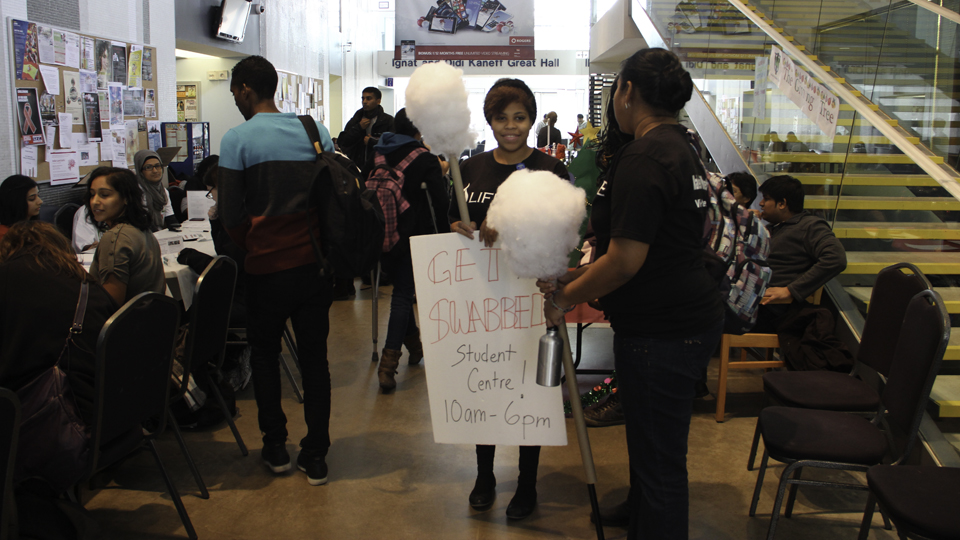Over 140 UTM students took a few minutes to save lives last Tuesday at the Get Swabbed event, hosted by Lifeline in collaboration with OneMatch Stem Cell and Marrow Network.
One of the participants commented that it was painless and easy, and since he had a few minutes, there was no reason not to participate.
Getting swabbed was a simple procedure, consisting of running four cotton swabs along the inside of the cheeks—one for each quadrant of the mouth. The most time-consuming and painful part was filling out the forms.
Swabbing samples are added to the OneMatch databank in the hope that suitable matches for patients in need of stem cell treatment can be found. These patients are those who have been diagnosed with life-threatening diseases like lymphoma, leukemia, aplastic anemia, and more. The stem cells are immature cells that mature into other types of cells, such as red and white blood cells, which cancer patients are short of.
There are three methods of collecting stem cells when it actually comes time to donate: from blood (called “peripheral” stem cells), from blood, from bone marrow, and from umbilical cords donated by mothers after birth.
Jennifer Ward, a volunteer at Lifeline, donated her son’s umbilical cord.
“Everybody knows someone who needs help—it could be your mom, best friend, or child,” said Ward. “It’s important to give, not just for those that you know, but also for everyone else. Everyone is someone’s child, so we should donate as much as possible.”
Only 25% of patients are able to find a compatible stem cell donor in their family. The rest must turn to organizations like OneMatch and rely on the kindness of strangers—of which there are over 19 million generous registrants worldwide and 330,000 in Canada. However, there are still 949 Canadians unable to find matches.
This makes donation essential, especially for ethnically diverse males between the ages of 17–35. Unfortunately, the male turnout at the event was low.
One explanation about the low turnout was from one Shumayel Khan, who attributed it to the “cultural consciousness of guys”. Other students attributed it to a lack of advertisement.

